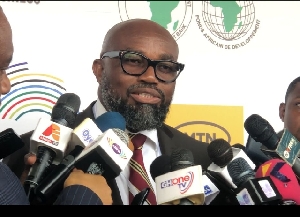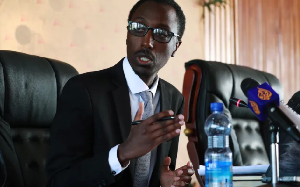In the quest for the success of the African Continental Free Trade Area (AfCFTA), key considerations such as logistics and transportation have to be noted as crucial elements Mr Daniel McKorley, the Chief Executive Officer of McDan Group, has said.
He said this during the Prosperity Dialogue Summit held in Accra, Ghana, on Friday, January 26, 2024, at the Peduase Lodge in the Eastern Region, with discussions focused on intra-African trade and the promotion of AfCFTA.
He emphasised the necessity of efficient logistics to facilitate business transactions across the continent under the AfCFTA.
He explained that currently there are 55 countries engaged in business within the continent, and the challenge lies in how to facilitate the movement of goods and services.
He revealed that ongoing efforts by African Prosperity Network's dialogue series are likened to a networking initiative, promoting collaboration among businessmen.
''With a staggering 44 million Small and Medium-sized Enterprises (SMEs) across Africa, the focus is on making the AfCFTA a success,'' he said.
However, concerns have been raised about the dominance of the logistics sector by foreign entities, with no African shipping or cargo lines in operation, he noted.
According to the logistics mogul, the potential risk of non-African entities taking control is acknowledged, emphasising the need for African ownership and control in this critical sector.
Mr McKorley emphasised that now is the time for African businesses to seize the opportunity presented by the AfCFTA, stressing that the continent has the resources to make significant economic strides.
''The potential economic gain is estimated at $3.4 trillion annually," he indicated.
Addressing concerns about possible challenges for Ghanaian businesses, Mr McKorley encouraged stepping up business operations in other countries, emphasising the need for collaboration and mutual growth among African nations.
The AfCFTA, aimed at eliminating trade barriers on the continent, is seen as a significant opportunity for Africa to assert itself on the global economic stage.
He worried about the existence of 49 borders travelling from Ghana to Nigeria, adding that AfCFTA is here to eliminate all these borders.
Furthermore, there was a discussion on the importance of a deliberate policy to encourage Africans to purchase petroleum products directly from refineries on the continent, particularly citing the Dangote refinery as a potential source, Mr McKorley endorsed this approach, suggesting that governments should take deliberate steps to support specific businesses, fostering the growth of local giants and transitioning from a tax-dependent economy to one driven by production.
In conclusion, he urged the business fraternity to proactively engage with the AfCFTA, emphasising that understanding and taking advantage of the trade agreement's objectives would contribute to its success.
He called for a shift towards production-oriented policies supporting local businesses and a broader strategy for economic transformation in the African context.
Business News of Sunday, 28 January 2024
Source: classfmonline.com













